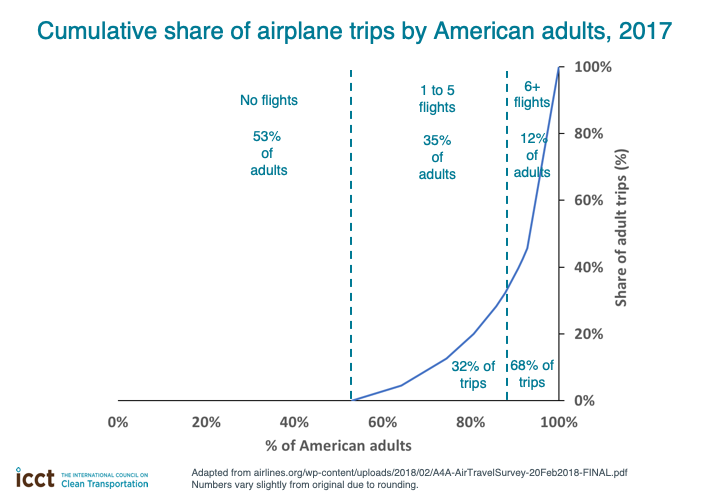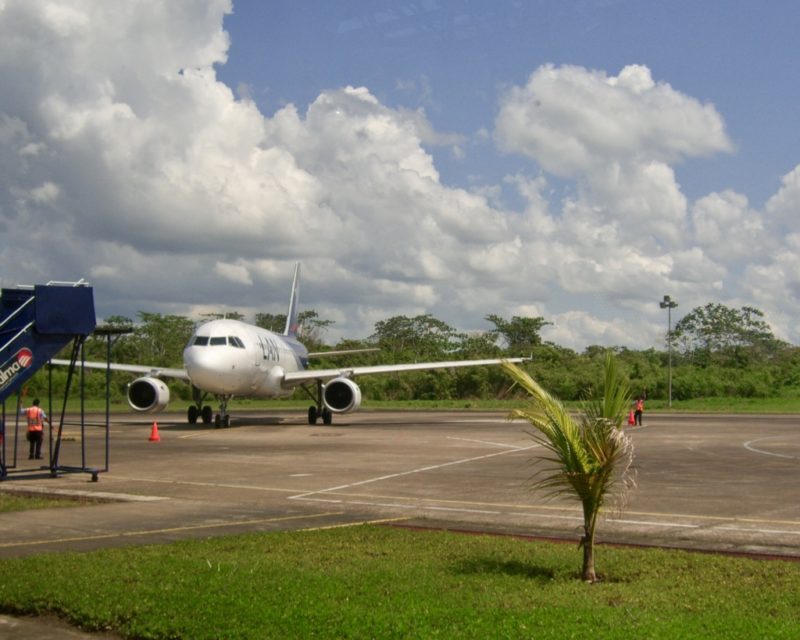Do carbon offsets assuage guilt? Prince Harry and his wife, Meghan, seemed to think so when they defended their prolific private jet use by purchasing carbon offsets.
I must admit that when I read that story I shared in the collective outrage for the hypocrisy of it all. Are carbon offsets really sufficient, I wondered, to justify the added carbon emissions from flying?
Then the guilt set in for my own enviro-sins, as I thought about how much I and my family depend on unnecessary air travel. (No private jets, though.) Who was I to judge when others were giving up flying to save the planet? In fact, there’s a growing no-fly movement in response to this flygskam (“flight shame,” in Swedish).
So last week when I heard a presenter at a climate change conference remark that you can indeed help mitigate your carbon footprint from air travel through carbon offsets I thought I’d find out more.
Are Carbon Offsets the Solution to Air Travel Emissions?

The argument against carbon offsets is that they’re a “license to pollute.” It’s true, in an ideal world, we’d all lead carbon-free lives. The reality is that we still depend on pollution-spewing air travel and will continue to do so.
There are times, whether for work or personal reasons, when air travel is the only option. Carbon offsets offer a convenient, inexpensive, and (frequently) tax-deductible way to mitigate the environmental damage of flying.
When purchasing offsets, ensure that your dollars are invested in projects that have been certified by independent third-party rating organizations. For more on these certification programs and certified offset sellers, read my post on how to purchase carbon offsets.
Should You Stop Flying?

Should you stop flying? It’s complicated. Emissions from air travel are not insignificant. The International Council on Clean Transportation estimates that the average U.S. citizen emitted about 550 kg of CO2 in 2018 due to passenger aviation, or about 3.3% of all CO2 emissions.
But upon closer examination, the majority of American air travelers are not heavy emitters. It’s actually a small frequent flyer group, representing 12% of Americans (see the ICCT graph, above), who are the chief emitters. This group emits approximately 3.1 tonnes of CO2 per person, a considerable amount.
Unless you’re part of the frequent traveler group, your personal carbon footprint from air travel is relatively minimal. In addition, there’s some indication, at least with respect to companies, that offset purchases are spurring additional and enhanced emissions reduction strategies.
My own concern with offsets is that the purchase doesn’t offer a “teachable moment.” Think about it: If you’re the type of person who recognizes the need to purchase offsets, you already understand the need for maintaining a low carbon footprint. In all likelihood, you’ve made a change in your daily habits and are committed to a low-impact lifestyle.
The question remains, however, whether the general population is even aware of their broader impact on the environment. And if people are aware, whether they know of and are acting on this ability to siphon off part of their emissions. Carbon offsets are currently the domain of a climate action-educated elite and the challenge is how to raise awareness to a broader audience.
What Else Can You Do to Minimize Your Flying Footprint?

Fly Like a NERD
An ingenious recommendation from ICCT analyst Dan Rutherford, is to fly like a NERD:
- New. Newer aircraft like the A320neo or Boeing 787-8 have 15% less fuel burn than older designs.
- Economy. More seats, and fewer unfilled seats, means lower fuel burn per passenger.
- Regular. Regional jets and very large aircraft with four engines are fuel intensive. Regular, medium-sized jets tend to be more fuel efficient.
- Direct. Fly direct, without layovers, where possible to reduce fuel burn due to circuitous routes.
Other Ways to Fly Less
- Telecommute. Skype, email, and/or call for work-related events.
- Fly-less Vacations. Try one closer to home so you don’t have to fly, or consider a stay-cation.
- Eco Friendly Vacations. Try one of the growing number of eco friendly vacations that focus on environmental conservation. While you may need to fly to your destination, the combination of purchased offsets and a vacation designed to lower your footprint will help mitigate emissions.









